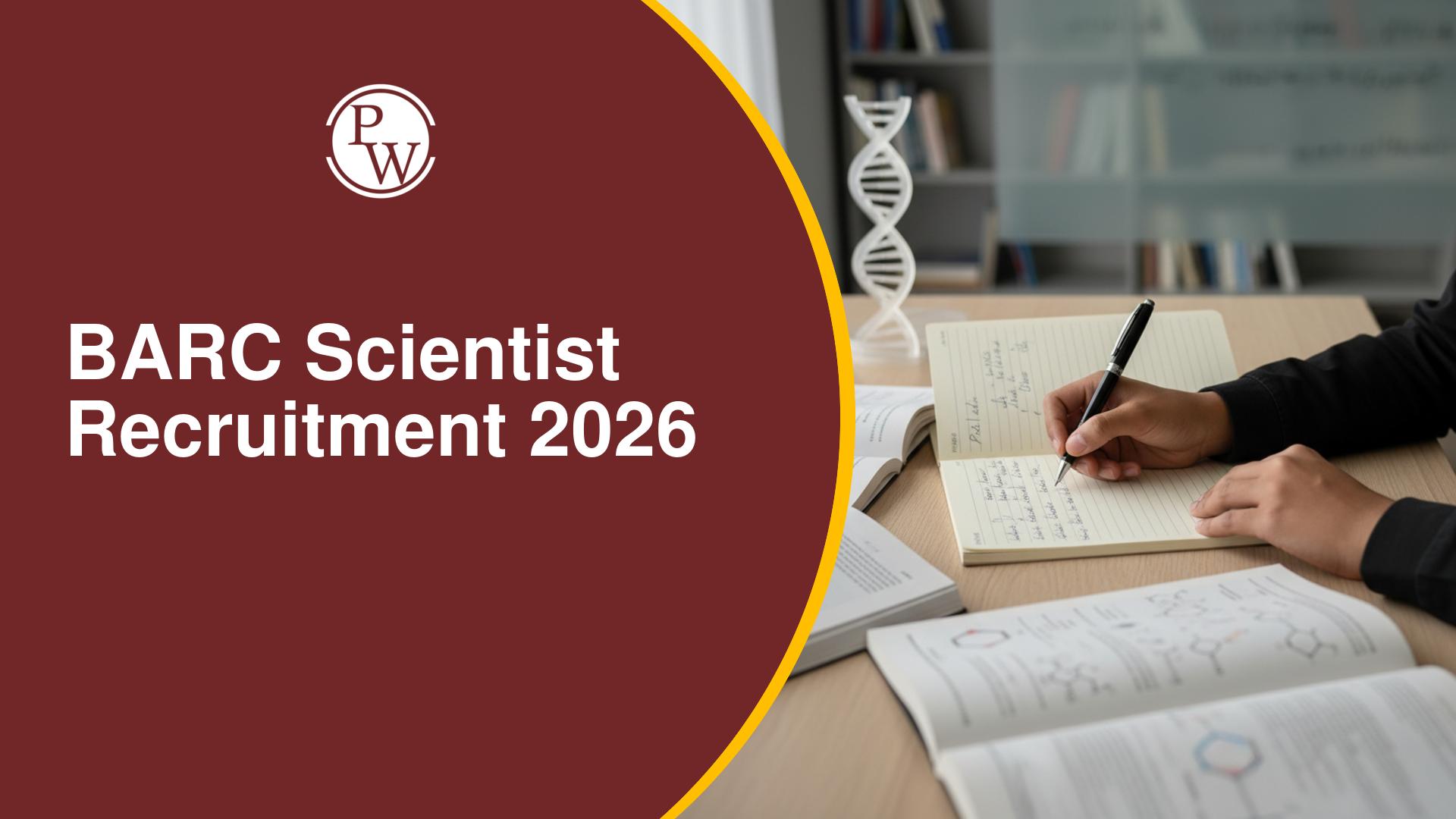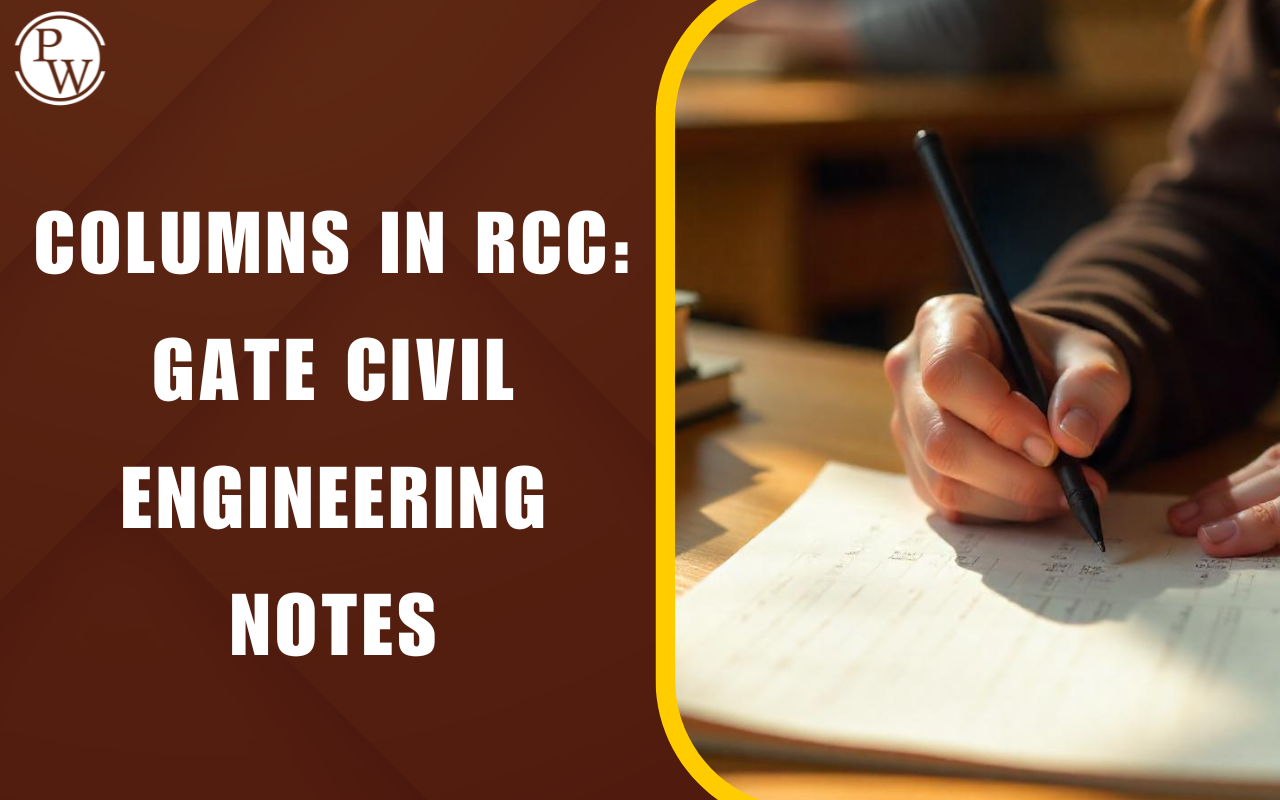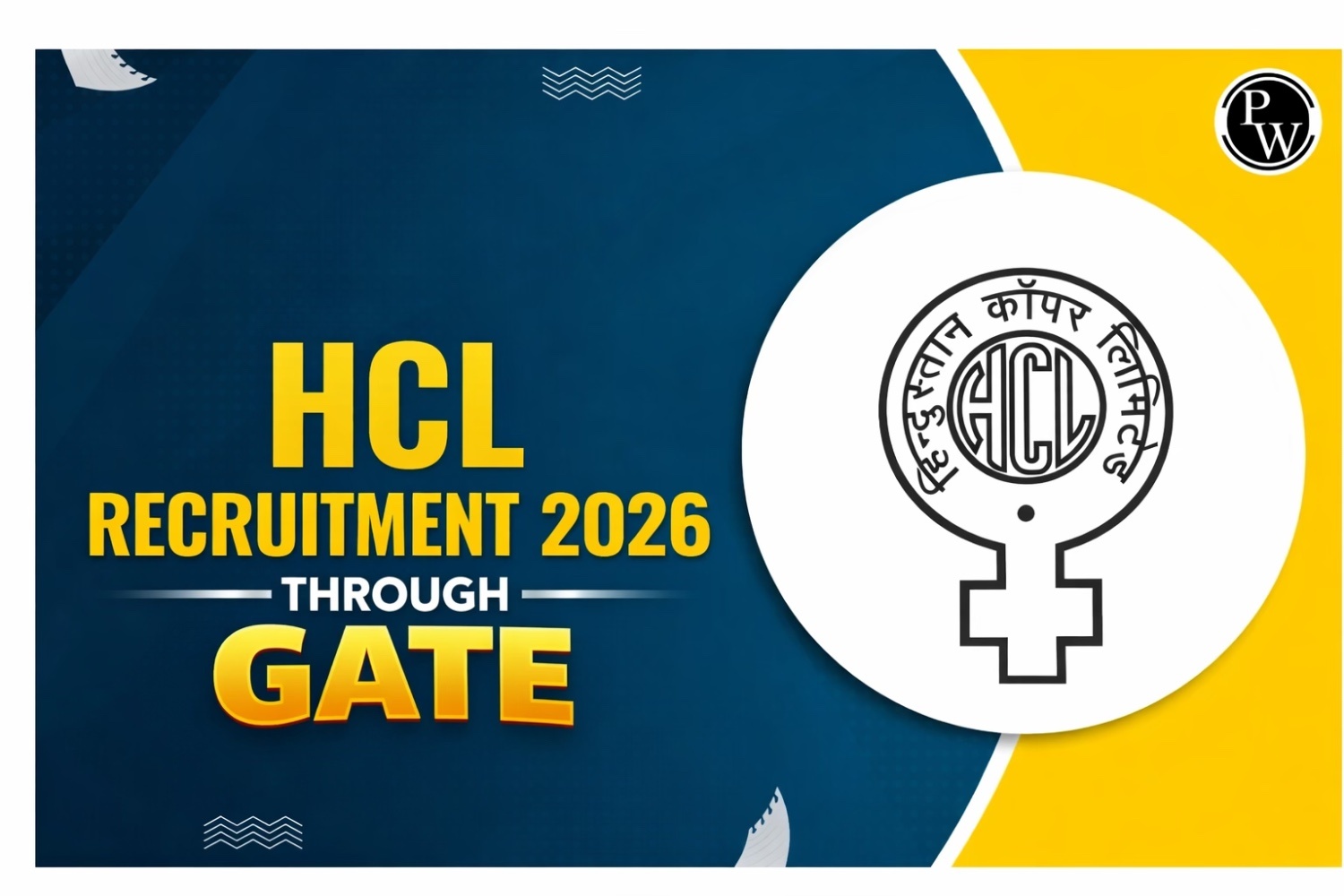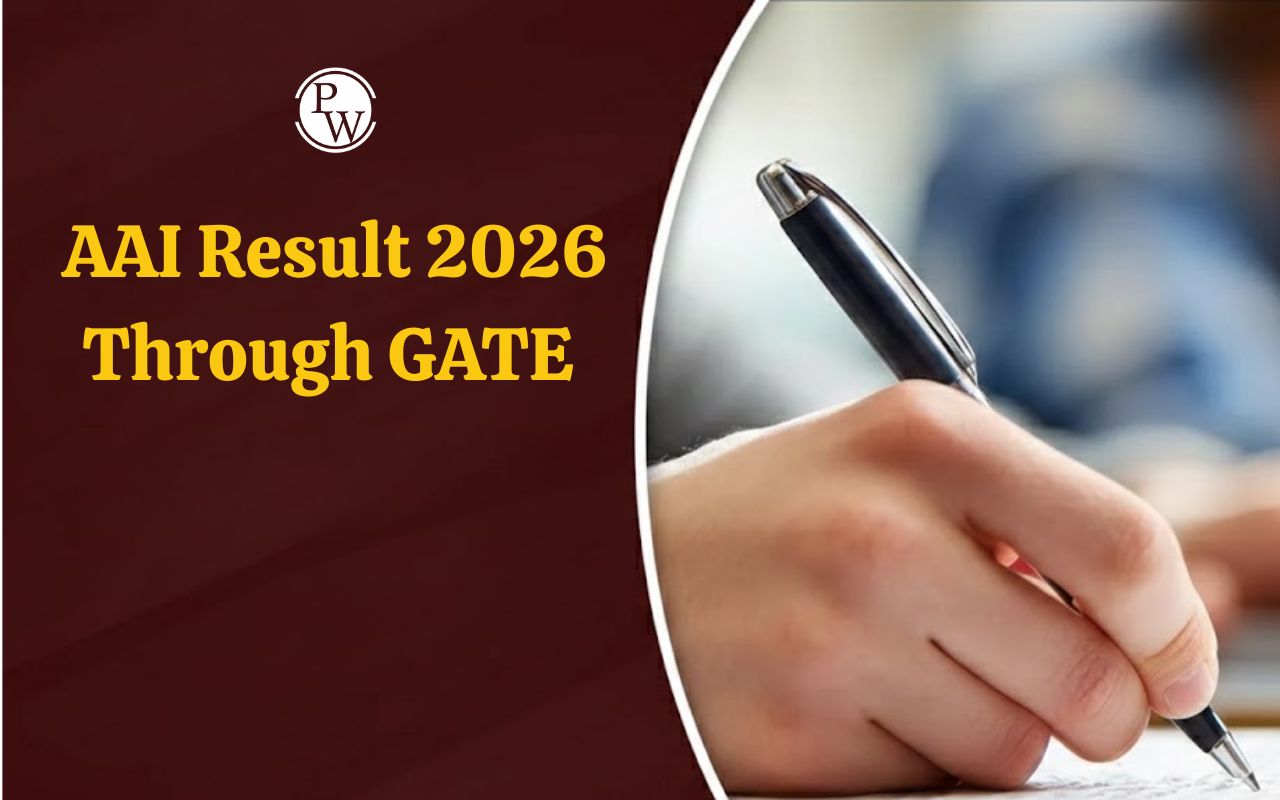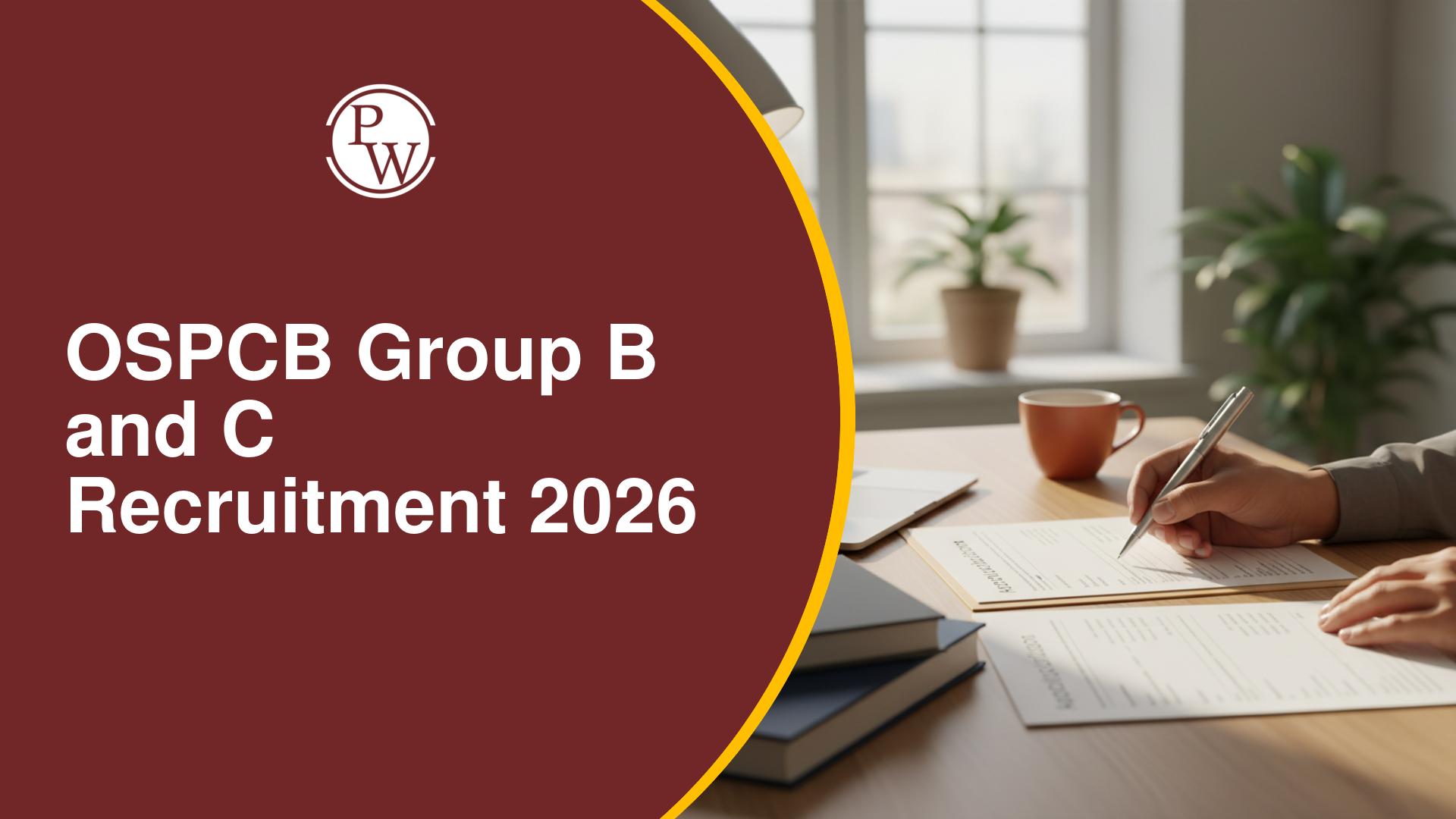
GATE Chemistry Syllabus 2026: Candidates who are aiming to crack the GATE Chemistry examination in 2026 must thoroughly review the syllabus and kick-start their preparation accordingly. The GATE 2026 will be hosted by IIT Guwahati across 30 various engineering specializations, including Chemistry with paper code CY.
The GATE Chemistry syllabus is divided into three sections: Physical Chemistry, Inorganic Chemistry, and Organic Chemistry, to test the candidate's comprehensive knowledge. The syllabus familiarizes the aspirants with the actual exam format and gives a detailed idea about subject-wise weightage.
Knowling the syllabus is essential for aspirants to prepare in a systematic manner. The conducting authority will officially release the GATE Syllabus 2026 for Chemistry following the release of notification. Candidates must review the detailed topic-wise syllabus to begin their preparation journey.
GATE Chemistry Syllabus 2026
The Graduate Aptitude Test in Engineering is India's one of the highly competitive examination serves as the gateway to secure postgraduate admission to top institutions and jobs in premier PSUs and top firms. Candidates who are planning to write the GATE 2026 examination with Chemistry discipline must start their exam preparation by understanding the entire syllabus.
The GATE Chemistry Syllabus is designed to evaluate the candidate's knowledge across Physics, Chemistry, Inorganic, and Organic Chemistry. The exam comprises 65 questions, out of which 10 questions arise from General Aptitude and 55 questions from core Chemistry topics. The paper is worth 100 marks, spanning 3 hours.
In order to aid the preparation of aspirants for GATE 2026, we have outlined the topic-wise breakdown of syllabus for the Chemistry section below.
GATE Chemistry Syllabus 2026 For Physical Chemistry
The GATE Chemistry Syllabus for Physical Chemistry includes topics like spectroscopy, equilibrium, kinetics, and surfaces and interfaces. Find out the updated GATE Chemistry Syllabus 2026 for Physical Chemistry from the table given below:
| GATE Chemistry Syllabus 2026 - Physical Chemistry | |
| Sections | Topics |
| Structure | Postulates of quantum mechanics. Operators. Time-dependent and time-independent Schrödinger equations. Born interpretation. Dirac bra-ket notation. Particle in a box: infinite and finite square wells; the concept of tunneling; particle in 1D, 2D, and 3D-box; applications. Harmonic oscillator: harmonic and anharmonic potentials; Hermite polynomials. Rotational motion: Angular momentum operators, Rigid rotor. Hydrogen and hydrogen-like atoms: atomic orbitals; radial distribution function. Multi-electron atoms: orbital approximation; electron spin; Pauli exclusion principle; Slater determinants. Approximation Methods: Variation method and secular determinants; first order Techniques. |
| Group theory | Symmetry elements and operations; Point groups and character tables; Internal coordinates and vibrational modes; symmetry adapted linear combination of atomic orbitals (LCAO-MO); construction of hybrid orbitals using symmetry aspects. |
| Spectroscopy | Atomic spectroscopy; Russell-Saunders coupling; Term symbols and spectral details; origin of selection rules. Rotational, vibrational, electronic, and Raman spectroscopy of diatomic and polyatomic molecules. Line broadening. Einstein’s coefficients. Relationship of transition moment integral with the molar extinction coefficient and the oscillator strength |
| Equilibrium | Laws of thermodynamics. Standard states. Thermochemistry. Thermodynamic functions and their relationships: Gibbs-Helmholtz and Maxwell relations, Gibbs-Duhem equation, van’t Hoff equation. Criteria of spontaneity and equilibrium. Absolute entropy. Partial molar quantities. Thermodynamics of mixing |
| Kinetics | Elementary, parallel, opposing and consecutive reactions. Steady-state approximation. Mechanisms of complex reactions. Unimolecular reactions. Potential energy surfaces and classical trajectories, Concept of Saddle points, Transition state theory: Eyring equation, thermodynamic aspects |
| Surfaces and Interfaces | Physisorption and chemisorption. Langmuir, Freundlich and Brunauer–Emmett–Teller (BET) isotherms. Surface catalysis: Langmuir-Hinshelwood mechanism. Surface tension, viscosity. Self-assembly. Physical chemistry of colloids, micelles and macromolecules |
GATE Chemistry Syllabus 2026 for Inorganic Chemistry
The GATE Chemistry Syllabus for Inorganic Chemistry covers an array of topics. These topics include Main Group Elements, Transition Elements, Lanthanides, and Actinides, among others, as outlined in the table below:
| GATE Chemistry Syllabus 2026 - Inorganic Chemistry | |
| Sections | Topics |
| Main Group Elements | Hydrides, halides, oxides, oxoacids, nitrides, sulfides – shapes and reactivity. Structure and bonding of boranes, carboranes, silicones, silicates, boron nitride, borazines and phosphazenes. Allotropes of carbon, phosphorous and sulphur. Industrial synthesis of compounds of main group elements. Chemistry of noble gases, pseudohalogens, and interhalogen compounds. Acid-base concepts and principles (Lewis, Brønsted, HSAB and acid-base catalysis) |
| Transition Elements | Coordination chemistry – structure and isomerism, theories of bonding (VBT, CFT, and MOT). Energy level diagrams in various crystal fields, CFSE, applications of CFT, Jahn-Teller distortion. Electronic spectra of transition metal complexes: spectroscopic term symbols, selection rules, Orgel and Tanabe-Sugano diagrams, nephelauxetic effect and Racah parameter, charge-transfer spectra |
| Lanthanides and Actinides | Recovery. Periodic properties, spectra and magnetic properties |
| Organometallics | 18-Electron rule; metal-alkyl, metal-carbonyl, metal-olefin and metalcarbene complexes and metallocenes. Fluxionality in organometallic complexes. Types of organometallic reactions. Homogeneous catalysis - Hydrogenation, hydroformylation, acetic acid synthesis, metathesis and olefin oxidation. Heterogeneous catalysis - Fischer-Tropsch reaction, Ziegler-Natta polymerization |
| Radioactivity | Detection of radioactivity, Decay processes, half-life of radioactive elements, fission and fusion processes |
| Bioinorganic Chemistry | Ion (Na+ and K+ ) transport, oxygen binding, transport and utilization, electron transfer reactions, nitrogen fixation, metalloenzymes containing magnesium, molybdenum, iron, cobalt, copper and zinc |
| Solids | Crystal systems and lattices, Miller planes, crystal packing, crystal defects, Bragg’s law, ionic crystals, structures of AX, AX2, ABX3 type compounds, spinels, band theory, metals and semiconductors |
| Instrumental Methods of Analysis | UV-visible, fluorescence and FTIR spectrophotometry, NMR and ESR spectroscopy, mass spectrometry, atomic absorption spectroscopy, Mössbauer spectroscopy (Fe and Sn) and X-ray crystallography |
GATE Chemistry Syllabus 2026 for Organic Chemistry
The GATE Chemistry Syllabus for Organic Chemistry covers topics like Stereochemistry, Reaction Mechanisms, Organic Synthesis, etc. Find the complete GATE 2026 Chemistry Syllabus for Organic Chemistry tabulated below:
| GATE Chemistry Syllabus 2026 - Organic Chemistry | |
| Sections | Topics |
| Stereochemistry | Chirality and symmetry of organic molecules with or without chiral centres and determination of their absolute configurations. Relative stereochemistry in compounds having more than one stereogenic centre. Homotopic, enantiotopic and diastereotopic atoms, groups and faces. Stereoselective and stereospecific synthesis |
| Reaction Mechanisms | Basic mechanistic concepts – kinetic versus thermodynamic control, Hammond’s postulate and Curtin-Hammett principle. Methods of determining reaction mechanisms through kinetics, identification of products, intermediates, and isotopic labelling. Linear free-energy relationship – Hammett and Taft equations. Nucleophilic and electrophilic substitution reactions (both aromatic and aliphatic) |
| Organic Synthesis | Synthesis, reactions, mechanisms, and selectivity involving the following classes of compounds – alkenes, alkynes, arenes, alcohols, phenols, aldehydes, ketones, carboxylic acids, esters, nitriles, halides, nitro compounds, amines, and amides. Uses of Mg, Li, Cu, B, Zn, P, S, Sn and Si based reagents in organic synthesis |
| Pericyclic Reactions and Photochemistry | Electrocyclic, cycloaddition, and sigmatropic reactions. Orbital correlations - FMO and PMO treatments, Woodward-Hoffmann rule. Photochemistry of alkenes, arenes, and carbonyl compounds. Photooxidation and photoreduction. Di-π-methane rearrangement, Barton-McCombie reaction, Norrish type-I and II cleavage reaction |
| Heterocyclic Compounds | Structure, preparation, properties and reactions of furan, pyrrole, thiophene, pyridine, indole, quinoline and isoquinoline |
| Biomolecules | Structure, properties and reactions of mono- and di-saccharides, physicochemical properties of amino acids, chemical synthesis of peptides, chemical structure determination of peptides and proteins, structural features of proteins, nucleic acids, lipids, steroids, terpenoids, carotenoids, and alkaloids |
| Experimental techniques in organic chemistry | Optical rotation (polarimetry). Applications of various chromatographic techniques such as thin-layer, column, HPLC and GC. Applications of UV-visible, IR, NMR and Mass spectrometry in the structural determination of organic molecules |
GATE Chemistry Syllabus 2026 PDF
The official GATE Chemistry Syllabus 2026 PDF will be released by IIT Guwahati with comprehensive coverage all the topics. The institution follows the prescribed syllabus to frame the questions, so candidates are advised to prepare in accordance with syllabus.
We have shared a direct link to access the GATE Chemistry Syllabus for 2025 in PDF format. Candidates can refer to this document to find out the in-depth syllabus to align their preparation strategy for the upcoming exam.
Download GATE Chemistry Syllabus PDF
GATE Chemistry Syllabus - Section-Wise Weightage
The general aptitude section of the GATE Chemistry Syllabus accounts for 15% weightage, while the core discipline carries the remaining 85% of the total marks. The weightage of sections for the GATE Chemistry Syllabus 2026, provided below:
| GATE Chemistry - Weightage of Sections | ||
| Section | Weightage | Marks Distribution |
| General Aptitude (GA) | 15% of the total marks |
|
| Core Chemistry Subjects | 85% of the total marks |
|
GATE CY Syllabus 2026 - Topic-Wise Questions
Based on the previous year's question papers, the common trend of questions expected to arise from the GATE Chemistry Syllabus 2026 is mentioned below:
| Topic-Wise Questions Distribution | |
| Section | Expected Number of Questions |
| Chemical Equilibrium | 4 |
| Chemical Kinetics | 5 |
| Group Theory | 3 |
| Transitional Elements | 3 |
| Stereochemistry | 4 |
| Organics Synthesis | 5 |
| Biomolecules | 2 |
| Experimentation Techniques in Organic Chemistry | 2 |
| Reaction Mechanisms | 5 |
| Spectroscopy | 2 |
| Main Group Elements | 4 |
| Organometallics | 3 |
| Structure | 3 |
| Spectroscopy | 2 |
| Solids | 2 |
| Radioactivity | 2 |
| Heterocyclic Compounds: | 2 |
| Pericyclic Reactions and Photochemistry | 2 |
GATE Chemistry Exam Pattern 2026
The GATE CY paper will be held in online mode, consisting of 65 questions. These questions will be multiple-choice, multiple-select, and numerical answer types in nature, carrying 100 marks in total. There will also be a penalty of 1/3 and 2/3 marks for MCQs carrying 1 or 2 marks, respectively. Find out the complete GATE Chemistry Exam Pattern 2026, outlined below:
| GATE Chemistry Exam Pattern 2026 | |
| Particular | Details |
| Exam Mode | Online |
| Total Questions | 65 |
| Total Marks | 100 |
| Exam Duration | 3 hours |
| Language | English |
| Types of Questions | MCQs, MSQs & NATs |
| Sections | General Aptitude & Chemistry |
| Weightage of Sections | General Aptitude: 15% & Chemistry: 85% |
| Section-Wise Questions & Marks |
|
| Negative Marking |
|
GATE Chemistry Syllabus 2026 FAQs
Q. What are the sections in GATE chemistry?
Q. What is the GATE Chemistry Eligibility?
Q. How do I prepare for GATE Chemistry 2026?
Q. How many questions are there in the GATE chemistry exam?
Q. How can I download the GATE Chemistry Syllabus PDF?



